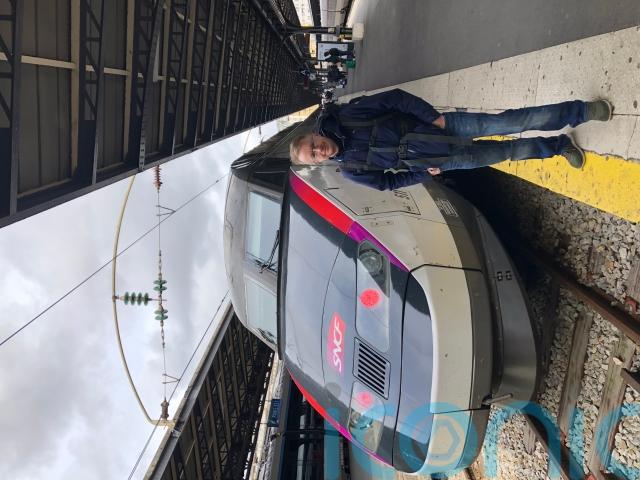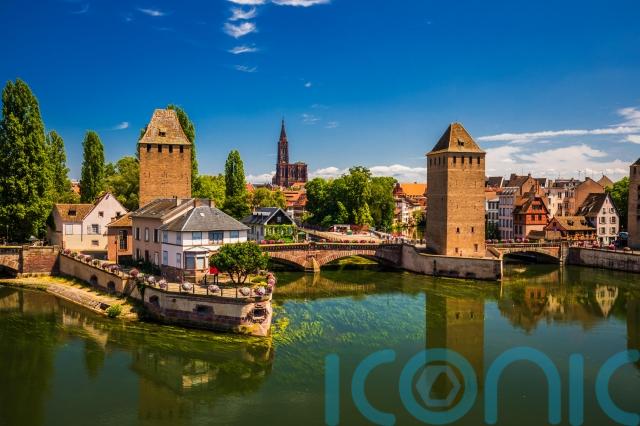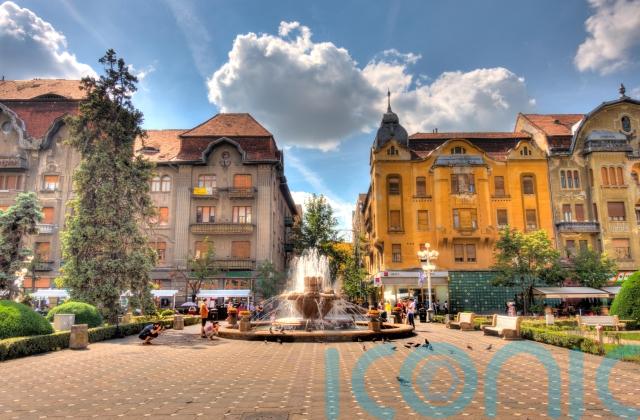It all began on a park bench in London’s Soho Square. We had both just turned 50. We had known each other for years (since college). We had family responsibilities, but we wanted to get away for a while – and had the green light to do so from those close to us.
We both enjoyed Europe. We both enjoyed travelling by trains. We were seeking what the writer Jerome K. Jerome so pithily put at the beginning of Three Men In A Boat, his 1880s comic masterpiece about a journey down the River Thames: “Rest and a complete change… the overstrain upon our brains has produced a general depression throughout the system. Change of scene, absence of the necessity for thought, will restore the mental equilibrium.”
Within an hour or so of mulling this over in the sunshine (accompanied by Red Stripe lagers), my old friend Danny and I had hatched a simple plan: we would go on a long rail journey to Istanbul, following the classic route of the Orient Express. Two men on a (load of) trains heading for Turkey, rather than three men in a boat on the Thames.
A few clicks on the Interrail website and, hey presto, a couple of weeks later we were at St Pancras International, hopping on a Eurostar.
Many people believe Interrail journeys are just for gap-year students hoping to “find themselves” and explore Europe, and this was indeed their original purpose. Back in 1972, the International Union of Railways created Interrail passes specifically for the under-21s, who had been cut off from travelling around the Continent by high ticket prices.
In those days, passes had cost £27.50 for unlimited journeys over a month. And they were such a hit in their first year, with almost 90,000 sold, they were continued and marketed more widely. By 1998, all ages were permitted to book, with prices higher for those over 27, but discounts for over-60s.
These days, the railways of 33 European countries participate, up from 21 in the 1970s. You download the Eurail app – Eurail is a Dutch-based company running Interrail – and a simple system allows you to book tickets.

And so, for us, the tracks led to Paris, in the midst of protests against President Macron’s plans to increase the French retirement age by two years to 64. The joy of arriving in the French capital and thinking, “Where next?” while mooching about in cafés and bars was, it must be said (despite riot police rumbling by in vans), extremely liberating.
We soon span onwards down the line to Strasbourg, departing from Gare de l’Est, which was appropriately where the very first Orient Express left on October 4, 1883, led by the flamboyant Belgian railway entrepreneur Georges Nagelmackers, the wealthy son of a Belgian banker. Nagelmackers had visited America to see how transcontinental trains worked and had been inspired to emulate the luxurious services, many run by another famous early rail impresario, George Mortimer Pullman.
It was not long before we were in Strasbourg’s fine medieval old town, with its magnificent cathedral – and, very soon after that (the next day), we arrived in Nuremberg in Germany, visiting the courtroom where the Nuremberg Trials were held, and enjoying bratwurst and frothy lagers in Bavarian beerhalls.

So began our sometimes-hectic, spur-of-the-moment, zigzag route to Turkey. Via a night in the small, quaint city of Passau on the River Danube, still in Germany, we pulled into Slovakia’s lively capital, Bratislava, having traversed a slice of Austria.
Bratislava is also on the Danube, as was our next stop-off in Budapest, Hungary’s capital, with its ornate river bridges, fine parliament building, thermal spas, down-to-earth bars and distinguished 19th-century stations; the best, Keleti Station, featuring a statue of Britain’s railway hero George Stephenson on its fine façade.
From there, Danny and I booked seats for Timisoara in Romania, which was where the revolution had begun against Nicolae Ceausescu, Romania’s despotic ruler from 1967 to 1989. There’s a museum all about it near the many elegant squares lined with Neo Baroque architecture.

By this stage of an Interrail trip to Istanbul, you will be in the swing of it.
We booked the sleeper to Bucharest, Romania’s rather gaunt capital filled with communist-era buildings. Next up came a night in the remote Danube-side city of Ruse in Bulgaria – home to Bulgaria’s National Transport Museum, filled with old locos (for any train buffs considering the route).
More clattering tracks led to Sofia, Bulgaria’s capital, with its compact old town, Roman ruins and excellent views of Mount Vitosha. And courtesy of another long sleeper ride, we were soon arriving at dawn in Istanbul, listening to the echoing calls to prayer, watching ships slide by across the luminous Bosphorus, and tucking into a blow-out lunch at the Orient Express Restaurant at Sikeci station.

This ornate station, designed by the Prussian architect August Jasmund in “oriental style”, was where the old Direct Orient Express from Paris terminated up to 1977, when the service was finally cut due to lack of passengers, as people had been turning to jet planes.
Now, for those wanting a continuous train from Paris to Istanbul there is only the Venice-Simplon-Orient-Express running once a year, covering five days. The price? An eye-watering £17,500 per passenger.
No need to blow all that doing it the DIY way using Interrail, though.
At Sirkeci, we raised our glasses to the journey, our equilibria happily restored, al la Jerome K. Jerome. What a great way to go.
How to plan your trip
A 15-day Interrail pass costs from £410, or £368 for over-60s and £307 for under-28s (interrail.eu).
Tom Chesshyre is the author of Slow Trains To Istanbul… And Back: A 4,570-Mile Adventure On 55 Rides, published by Summersdale.

